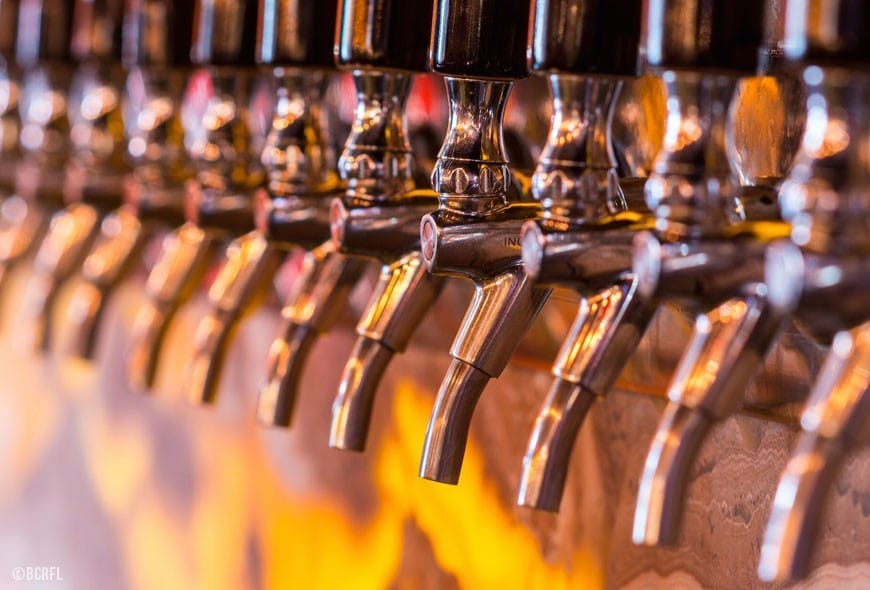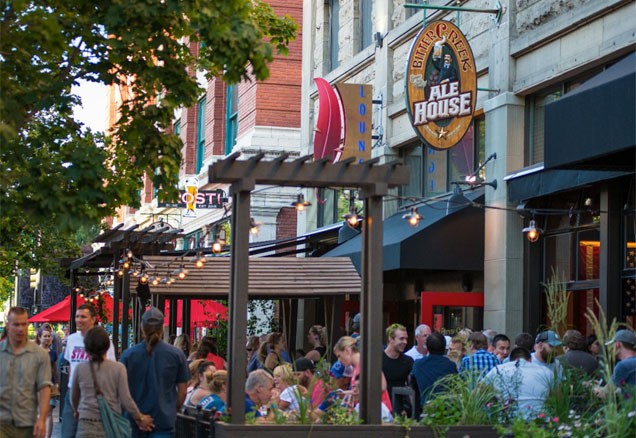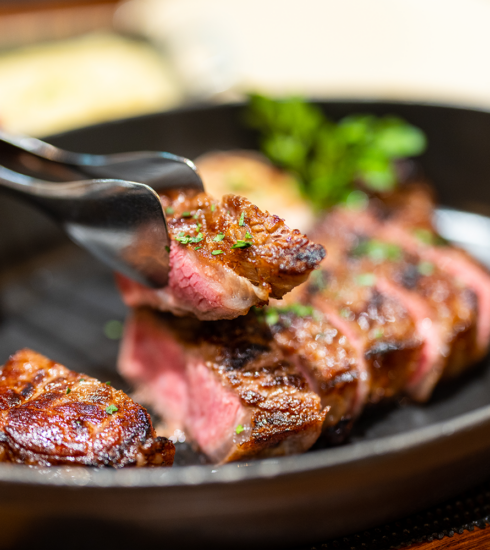Farm-to-Table Dining Is On The Rise In Boise, Idaho
Consumers and employees today are beginning to affect change on a large scale by voting with their wallets and demanding farm-to-table dining experiences. As a result, restaurants and small business owners alike are starting to take their values and apply them to their business practices to make the world a better place.
Many of us believe we can be most effective in working for these kinds of goals if we live with integrity. Here in Idaho, for example, a group called Idaho’s Bounty is dedicated exclusively to promoting and supporting local, organic farms and producers of sustainably-raised meat and dairy, as well.
In the growing city of Boise, Idaho, there are a number of local restaurants striving to make a difference by giving back to their community in a meaningful way. Supporting local, sustainable farms matters, for a number of reasons: when you buy from local businesses money stays in the community, helping to maintain farmers’ and restaurant owners’ way of life.
The farm-to-table dining experience
Farm-to-table restaurants have become a thing, now, and they’re not going away anytime soon. In fact, they serve as an example of vital importance. There are a number of restaurants in and around the Boise area that are committed to bringing farm-to-table dining to their patrons, including Red Feather Lounge/Bittercreek Alehouse, Fork, Boise Fry Company, Café Vicino, Jenny’s Lunch Line, Mai Thai, and The Modern Hotel—among others. Stop by any of these eateries during happy hour or a weekend out, and you’ll see outdoor patios filled with patrons enjoying plates of local food paired with local wines and beers. Many are customers of those restaurants for a reason: rather than support yet another fast food drive through, they believe in supporting local farmers and humane animal-handling practices.
Many fans of the buy-local movement believe that supporting organic and fair-trade producers is not enough; that we also need to support the local farmers and ranchers within our own communities in order to battle needless pollution and inflation as a result of transportation costs—which often make no sense, when considered logically. This model, based on wide-scale import and export of produce, is not sustainable, nor is it cost-effective: it makes much more sense to grow produce locally, so that communities are more self-sufficient and able to keep more money in local hands.
Just this simple act of growing and eating one’s own food, or food from local farms, is a radical act of self-sufficiency and sustainability that brings purpose to our roles in our community and our society. It is work of vital importance to teach ourselves how to grow food, again. It used to be par for the course that families raised their own animals and grew crops on their own land. Farm-to-table restaurants, along with local farmers markets and CSAs, are working to return an awareness to knowing where food comes from.
So, without further ado, here is a closer look at one restaurant that is revolutionizing the food-service business by daring to operate outside the box and follow the sustainable path, opting for corporate social responsibility over mere cost-effectiveness: Bittercreek Alehouse/Red Feather Lounge.
Restaurant uses vermiculture for composting

The same building houses Bittercreek Alehouse and Red Feather Lounge, which are next door to each other; both restaurants are run by the same owner, Dave Krick. Red Feather has a decidedly swank, romantic ambience, with a red interior and cozy, candle-lit tables and booths perfectly designed for date night. Next door, Bittercreek offers a more casual and bustling atmosphere, with long tables catering to large dining groups. An impressive beer and cocktail selection is available on both menus, with artisan cocktails made by Red Feather that have won numerous awards and city-wide contests.
More importantly, there are two giant compost bins in the basement that benefit both establishments. You may be wondering exactly how many worms are in the composting bins: “Some 100 pounds…a day are feeding an extra 200,000 diners – Vermont red wiggler worms that live in the restaurants’ basement, working around the clock to turn kitchen waste into nutrient-rich compost.”
Impressively, the Green Restaurant Association cites no other eatery in the United States, aside from a brewery in Hawaii that practices ‘vermiculture,’ with an in-house composting bin. It makes a lot of sense for a restaurant business to recycle their food waste, especially considering how many people send their plates back to the kitchen with leftovers, rather than take their leftovers home with them.
Benefits of commercial composting
Composting food waste, as opposed to adding it to the waste headed to the dump, is good for both the atmosphere and the soil, after it’s been stewing together with soil and worms to help everything break down. In addition to the impressive number of worms composting in the basement, the two restaurants source their ingredients from local vendors—beginning with Krick’s own farm: apparently, he farms almost 500 acres, which he uses to grow “a variety of vegetables, dry beans, and grains. He also raises chickens, pigs and cows in what is known as a polyculture, or the raising of more than one species of plant or animal in the same place.”
Here’s to hoping that the farmer-eco-restauranteur model catches on and continues to increase in popularity and viability, as more farm-to-table establishments open their doors to business in the Treasure Valley. Are there any Idaho-based farm-to-table eateries you recommend? Let us know in the comments section, below!









